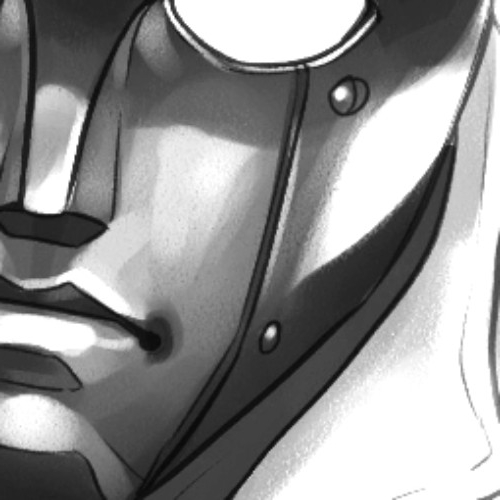Explanations/etymology also appreciated!
For Joe Shmoe, it means a very average or below average person. It’s a derivation of the practice of using “shm-” to dismiss something (eg “Practice shmactice. We’re already perfect”).
And “John Smith” is meant to be the most average name or person imaginable, so they have the “most common” (citation needed) first and last name as well.
In the UK it is Joe Bloggs
Also Fred Bloggs in Australia — maybe they’re related?
In Finnish it’s Matti Meikäläinen for male and Maija Meikäläinen for woman. Matti Meikäläinen roughly translates to Matt Myself
Hm, well about 40% of our population is named Nguyễn. I don’t think there’s an equivalent expression, but I’d choose Anh Nguyễn. In addition to being a name for both genders, ‘Anh’ just means something like ‘sir’ or ‘older brother’.
In Arabic its “فلان الفلاني" “fulan al-fulany”, which roughly translates to “someone from some family”
Japan, you usually use “Taro Tanaka” as the goto placeholder name. Tanaka is a very common surname here and it’s super easy to write as well (田中). Sato is actually the most common but also a lot harder to write (佐藤). Tanaka is also a very “working class” name, it litearlly means “in the rice field” and most likely comes from families with a background of rice farmers. Taro also a very common given name; there have been quite a few Taro Tanakas throughout history despite being the placeholder name on most forms and the like. Taro, incidentally means “Big/Strong Son”.
I am not sure offhand of a female equilvalent, it’s usually Taro as the placeholder.
Along with Tanaka, Yamada (山田) is also often used as a placeholder surname. It’s a comparably common name that’s also simple to read and write.
As for female placeholder given names, IMO the closest equivalent to Taro would probably be Hanako (花子). I’ve seen adverts that show sample credit cards or forms bearing these names.
For example, an ad for a Toyota financing promotion might feature the name Toyota Taro on the sample application form. Or in a Mitsubishi UFJ credit card ad, the happy-looking lady in the ad will be using a credit card that bears the name Mitsubishi Hanako.
In Italy the template names are “Tizio”, “Caio” and “Sempronio” whose origin dates back to the Middle Ages when they were used in legal cases as default names, probably inspired to the Gracchi roman family (Tiberius Sempronius Gracchus and Gaius Sempronius Gracchus). Another common name often used in examples is “Mario Rossi”.
All correct! But don’t forget our friend “Pinco Pallo”! 😉
And Tal dei Tali and Vattelapesca
In US legal cases, “John Doe”, “Jane Roe”, and similar names are used for pseudonymized legal parties.
For instance, the plaintiff in the famous abortion case Roe v. Wade was one Norma McCorvey, identified as “Jane Roe”.
A group of unidentified people appearing as plaintiffs or defendants may be called a group of “Does”, from the name John Doe.
The words doe and roe both refer to deer, which are common wild animals in North America — and as wild animals, represent an arbitrary unspecified person. A doe is a female deer; and while “roe” can also mean fish eggs, roe deer is a common European species of deer.
Good bot
Jhojho Aboolafya in everywhere in the Middle East I’ve been.
Can you write it in arabic
انا مش فاهم اه ده
جوجه ابولافيا
spoiled all the fun :)
Sweden: Svensson, although the most common surname is Andersson.
Specifically for Gothenburg - Glenn “everybody is called Glenn in Gothenburg”, or older use - Kålle (male) and Ada (female). Not used that often.
Flemish talking part of Belgium it is Jan Janssen
The “John Smith” in Chinese is 王小明 (pinyin: wang2 xiao3 ming2), the 王 being the family name and 小明 being the given name. The 王 is a very common family name (like Smith), 小, small, is a diminutive prefix often added to nicknames, and 明, bright, is a commonly used character in given name. I should note that this is only used for males and there isn’t really a “Jane Smith” for females.
Not to stifle further discussion, but this Wikipedia page has a wealth of examples
https://en.m.wikipedia.org/wiki/List_of_placeholder_names_by_language
I’d attest to that Juan de la Cruz for the most generic Filipino name. de la Cruz still works as a very common surname though I don’t think Juan is still used as much as back then.
And then there are the placeholder phrases, all of which I’ve heard and used.
Uy, ku’nin mo ang ano, yung kuan, iyon! Ay, ano nga ba ang tawag d’yan? Noong ninety kopong-kopong pa namin binili iyan kina ano… Ano nga ba’ng pangalan niya?
The examples for places was interesting.
We have “Eketahuna” (meaning, a small town, middle of nowhere). Eketahuna is a real place ha ha.
We have “Waikikamukau” which is a fictional small town. In bad pakeha pronunciation accent it would sound like “why kick a moo cow”).
(Aotearoa/NZ)
Amazing, Ive been learning German for 8 years and just had a great laugh!
In the Philippines, it’s Juan and Maria dela Cruz, although those have fallen out of use due to the popularity of Western (aka US) culture. Interesting reading about every country’s own names for their everyman.
In Israel it’s Plony Almony. Idk why. But it’s fun to say








